Top Tips: WSP/ATR Submissions
Attention business owners – have you completed your Workplace Skills Plan (WSP) and Annual Training Report (ATR) yet? If not, the clock is ticking, and the deadline for submission is fast approaching on April 30th.
If you don’t submit these reports on time, not only will your company’s B-BBEE status be negatively impacted, but you’ll also miss out on the opportunity to claim up to 20% of your Skills Development Levy (SDL) through a grant from your SETA.
Here, we’ll provide you with a comprehensive guide to WSP and ATR submissions and how they can benefit your company.
Why is submitting a WSP/ATR beneficial to your business?
As a business with an annual payroll of over R500 000, you are obligated to pay SDL levies to SARS on a monthly basis, as stipulated by the Skills Development Levy Act (1999). Therefore, submitting a WSP and ATR would be beneficial to your company as it would allow you to recoup some of these levies.
Adhering to specific legal and procedural prerequisites enables you to reclaim as much as 50% of your Skills Development Levy (SDL) from your SETA (depending on which SETA you are registered with), which can make a significant difference to your bottom line. You can claim back 20% of your levy in a Mandatory Grant, while up to 50% of it can be claimed in Discretionary Grants, including Learnerships, Skills Programmes, Apprenticeships, Workplace Experience Placements, Internships, and Bursaries.
Ultimately, submitting a WSP and ATR can help you identify the skills gaps in your workforce and address them, promoting your employees’ professional development and investing in your company’s future skills needs. This is also a crucial component of the Skills Development priority element on your B-BBEE Scorecard, contributing to your overall B-BBEE rating.
What happens if you don’t submit the WSP and ATR?
Failing to submit your WSP and ATR can have significant repercussions for your company, including a negative impact on your B-BBEE status. As mentioned, this is because these reports are important components of the Skills Development priority element of the B-BBEE Scorecard. If your company does not submit them, it will not receive any points for skills development, which can result in a lower overall B-BBEE score. Even if your company has already scored points under this element, they will be invalidated without a SETA-approved WSP and ATR in place.
Moreover, not submitting the WSP and ATR can also result in the suspension of the grant linked to the WSP for the following year. This grant is an essential source of funding for training and development initiatives within your company. Without it, your company may have to rely on its own resources to invest in these initiatives, which can be challenging, especially if you’re a smaller business.
To help you avoid these potential pitfalls, we’ve compiled a list of top tips for submitting your WSP and ATR on time and accurately:
#1: Plan and prepare early
One of the most critical factors in submitting your WSP and ATR on time is to start early. Waiting until the last minute can lead to unnecessary stress and the potential for mistakes. By starting early, you’ll have more time to gather the necessary information, review it for accuracy, and make any necessary adjustments before the deadline.
#2: Understand the requirements
Before you start compiling your reports, it’s essential to check the requirements set out by your industry’s SETA. Make sure you have all the necessary documents, such as invoices, certificates, and attendance registers. By ensuring you have all the required information upfront, you can avoid delays or potential penalties for incomplete submissions.
#3: Align with your B-BBEE Scorecard
Aligning your WSP and ATR with your B-BBEE Scorecard can be the key factor in gaining one to even two B-BBEE levels. The importance of Skills Development as a priority element on the B-BBEE Scorecard cannot be overstated, so it’s crucial to ensure that your training programs are aligned with it.
#4: Submit on time
It’s crucial to submit your WSP and ATR on time and accurately to avoid any negative consequences for your business. The deadline for submission is 30th April (confirm with your relevant SETA, as some may vary), so ensure that you mark this date on your calendar and plan accordingly to submit all the necessary information before then.
#5: Keep a record of submissions
Once you’ve submitted your reports, make sure to keep a record of the submissions. This will come in handy should you need to provide proof of compliance at a later stage. Keep all the relevant documents in a secure location and make sure they are easily accessible.
Navigating B-BBEE compliance with BEE123
In order to successfully navigate the complex world of B-BBEE compliance and maximise the benefits for your business, it’s important to have access to experienced specialists who can provide strategic guidance and ensure that your compliance processes are optimal.
At BEE123, we recognise the importance of having access to both industry-leading B-BBEE software and subject matter expertise. That’s why we offer an integrated B-BBEE compliance solution that combines the two, providing our clients with the knowledge and digital tools they need to take full advantage of B-BBEE and realise their business goals while making a positive social impact in South Africa.
The bottom line
If you haven’t started preparing for your WSP and ATR submissions yet, it’s time to get moving. By meeting these requirements, you can improve your employees’ skills, benefit from SDL rebates, and enhance your B-BBEE Scorecard. Don’t miss out on these advantages – make sure you submit your WSP and ATR on time.
If you’re looking for a comprehensive solution to B-BBEE compliance, look no further than BEE123. Contact us today to learn more about how we can help your business take full advantage of B-BBEE and make a significant social impact in SA.




